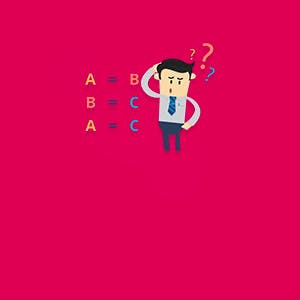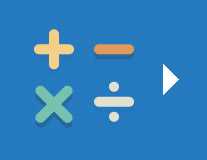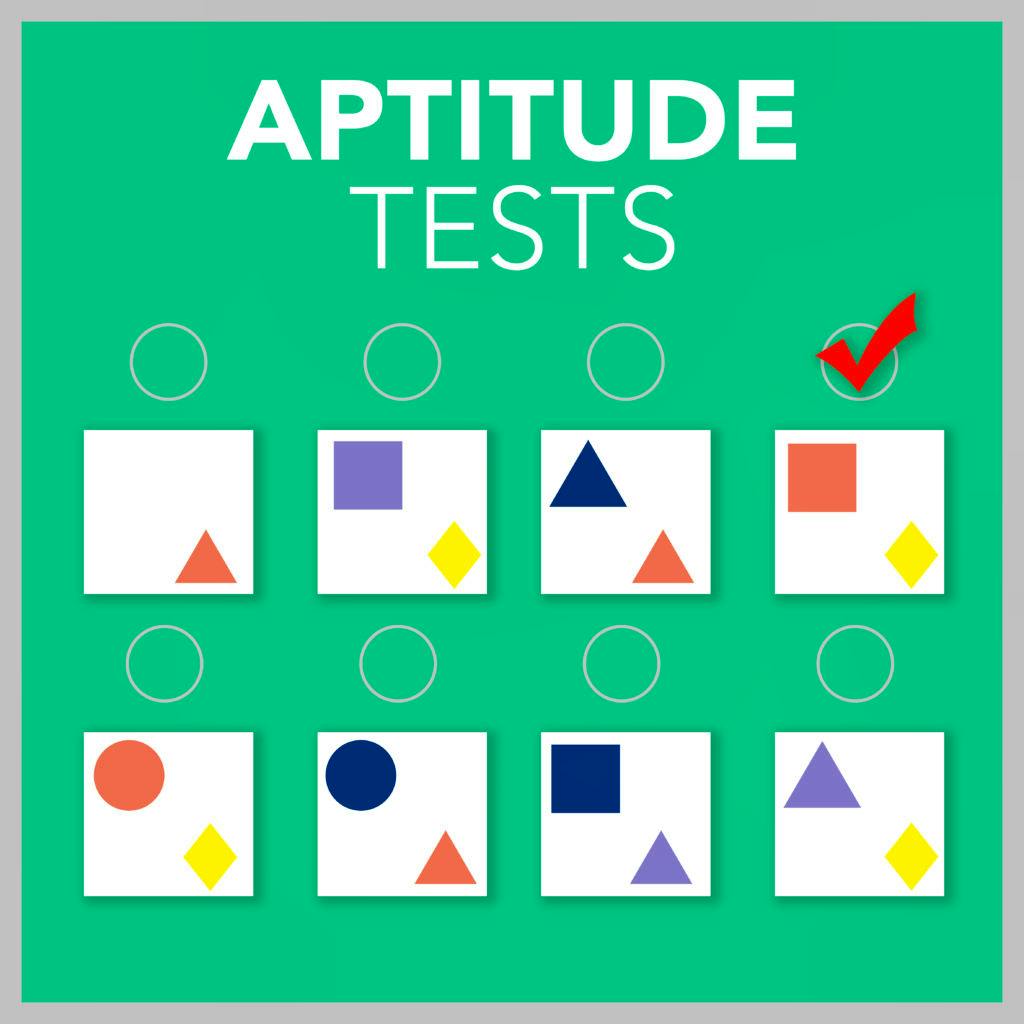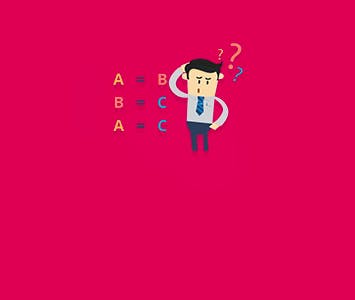Deductive Reasoning Practice: Test & Guide 2025
Updated November 27, 2024


What Is a Deductive Reasoning Test?
A deductive reasoning test is a type of cognitive assessment that measures a person's ability to draw logical conclusions based on given information or premises.
Deductive reasoning is a form of logical thinking that involves moving from general statements or principles to specific conclusions. In other words, it is the process of applying a general rule or premise to a specific situation to determine a particular outcome.
In a deductive reasoning test, you are typically presented with a set of premises or statements that establish certain conditions or facts. You are then asked to use these premises to determine a valid conclusion.
The conclusions you reach must follow logically from the given premises, and the test assesses your ability to make accurate deductions based on the provided information.
Deductive reasoning tests are often used in educational settings, as part of standardized testing, and in various employment assessments.
They are designed to evaluate an individual's problem-solving skills, critical thinking ability, and their capacity to analyze information and reach logical conclusions.
These tests can take various formats, including multiple-choice questions, true or false questions or scenario-based questions where you need to determine the correct outcome based on the information provided.
Success in deductive reasoning tests often requires a strong understanding of logical principles and the ability to apply them effectively to specific situations.
Who Uses Deductive Reasoning Tests?
Deductive reasoning tests are used by a wide range of organizations and institutions for various purposes.
Here are some of the key groups and contexts in which deductive reasoning tests are commonly used:
-
Educational Institutions: Educational institutions, such as schools and universities, may use deductive reasoning tests as part of their admission or placement processes. These tests help assess the logical thinking and problem-solving abilities of students.
-
Employers: Many employers use deductive reasoning tests as part of their hiring and selection processes. These tests can help evaluate a candidate's ability to think critically, make sound decisions and solve complex problems, which are valuable skills in many job roles.
-
Government Agencies: Government agencies, particularly those that require employees to make important decisions based on available information, may use deductive reasoning tests as part of their recruitment and assessment procedures.
-
Law Enforcement: Police departments and other law enforcement agencies may use deductive reasoning tests to assess the analytical and decision-making skills of potential officers and detectives.
-
Consulting Firms: Consulting firms often use deductive reasoning tests to evaluate the problem-solving abilities of candidates, as consulting roles typically involve analyzing complex data and providing solutions to clients.
-
Legal Professions: Deductive reasoning is a crucial skill for lawyers and legal professionals. Some law schools and legal employers use these tests to assess the logical reasoning abilities of aspiring attorneys.
-
Intelligence and Military Organizations: Organizations involved in intelligence gathering, national security, and military operations may use deductive reasoning tests to evaluate the cognitive abilities of their personnel.
-
Psychometric Testing: Deductive reasoning tests are commonly included in psychometric assessments used by human resources departments to measure cognitive abilities as part of talent management and development programs.
-
Graduate and Professional School Admissions: Some graduate and professional programs, such as business schools and medical schools, may use deductive reasoning tests as part of their admissions process to assess applicants' problem-solving skills.
-
Research and Academia: Deductive reasoning tests are also used in research and academic settings to study cognitive processes and decision-making.
What Does a Deductive Reasoning Test Consist of?
A deductive reasoning test typically consists of a series of questions or problems that assess your ability to draw logical conclusions based on provided information or premises.
The content and format of deductive reasoning tests can vary, but here are some common elements you may encounter in such a test:
-
Premises or Statements: You are presented with a set of premises or statements that establish certain facts, conditions, or rules.
-
Multiple-Choice Questions: You are asked to choose the most appropriate or valid conclusion from a list of options.
-
True or False Questions: Some deductive reasoning tests may present statements and ask you to determine whether they are true or false based on the provided premises.
-
Scenario-Based Questions: In scenario-based questions, you are presented with a specific situation or problem, along with a set of premises.
-
Logical Puzzles: Deductive reasoning tests may include logic puzzles or riddles that require you to deduce the correct answer based on the information provided.
-
Inductive vs. Deductive Reasoning: Some tests may also include questions that assess your understanding of the difference between inductive and deductive reasoning.
-
Time Constraints: Depending on the context and purpose of the test, there may be time constraints imposed on each question or the entire test.
-
Complexity Levels: Deductive reasoning tests may vary in terms of difficulty, with some questions being relatively straightforward and others requiring more complex logical thinking and analysis.
This deductive reasoning practice test has 16 questions (and answers with full explanations).
Deductive Reasoning Test Tips
Make sure you read and fully understand each question before answering. Work quickly, but don't rush. You cannot afford to make mistakes on a real test.
If you get a question wrong, make sure you find out why and learn how to answer this type of question in the future.
Practice Deductive Reasoning Questions & Answers
Based on the two given premises above the line, determine whether the conclusion below the line is logically correct or incorrect.
All polite people are good.
Some polite people are educated.
Some educated people are good.
Deductive reasoning tests can vary in difficulty depending on the specific test, the organization or institution using it, and the complexity of the questions. Some deductive reasoning tests may be relatively straightforward, while others can be quite challenging, especially for individuals who are not familiar with formal logic or deductive reasoning principles.
There isn't a universally defined 'good score' for a deductive reasoning test, as what constitutes a good score can depend on the context and the specific test. Typically, a good score is one that is above the average or median score of test takers. It's essential to check with the organization or institution administering the test to understand what score range they consider acceptable or competitive.
Numerous websites offer free or paid practice tests for deductive reasoning. Some popular test prep websites include Khan Academy, Practice Aptitude Tests and JobTestPrep.
The passing score for a deductive reasoning test can vary widely depending on the organization or institution conducting the test. Some organizations may set a specific passing score, while others may use a percentile ranking to determine whether an applicant's score is competitive.
Common deductive reasoning tests used by employers and educational institutions may include:
- Watson-Glaser Critical Thinking Appraisal
- SHL Deductive Reasoning Test
- LSAT (Law School Admission Test)
Deductive reasoning starts with a general premise or statement and then uses that premise to draw a specific conclusion. The conclusion is considered valid if it logically follows from the premises. Deductive reasoning is often used in mathematics and formal logic.
Inductive reasoning starts with specific observations or evidence and uses them to make generalizations or predictions. It involves drawing probable or likely conclusions based on patterns observed in the data. Inductive reasoning is common in scientific research and everyday decision-making.
Final Thoughts
Deductive reasoning, a fundamental cognitive skill, plays a pivotal role in shaping our ability to make logical decisions and solve complex problems.
In this article, we delve into the concept of deductive reasoning, highlighting its significance in various domains, from education to employment assessments.
Some of the most commonly encountered deductive reasoning test are the Watson-Glaser Critical Thinking Appraisal and the SHL Deductive Reasoning Test.











![Predictive Index Tests Fully Explained [With Example Questions + Answers]](https://www.datocms-assets.com/7756/1671731172-predictive-index-tests-none-x2.png?auto=compress%2C%20format%2C%20enhance%2Cformat&fit=crop&w=456)

